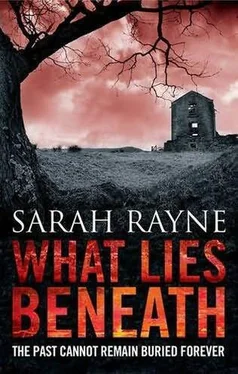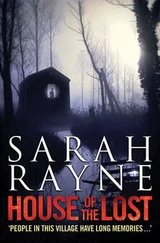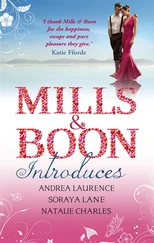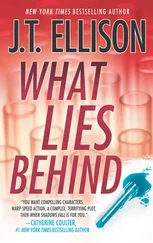It was part of family folklore how the beautiful Fay had died young, how she was forever enshrined in the heart of Colm and everyone who knew her. Even at the age of seven I knew I had to speak of Mamma with reverence and respect, and I knew I had to look at her photograph regularly so I would never forget what she looked like.
That summer was one of those long hot drowsy ones that seem to go on for ever, but I think there were only a few days left before Crispian and I would return to school. I remember I was running across the lawn to meet him – we were going down to the lake – when Flagg, who had been butler to Crispian’s family since before he was born, came out of the house and called to me. My father was asking for me, he said. Would I please come up to the house at once? This was annoying, but perhaps it would not take long. I went obediently; I was always an obedient child.
After the glare of the afternoon sunshine, Cadence Manor was dim and cool, and my father – that’s to say the man I thought of as my father – was waiting for me. He said, ‘Jamie, there’s someone you must see. Come through into my rooms.’
We crossed to the door leading to the small wing where he spent most of the time, and this was interesting because, as a rule, neither Crispian nor I was allowed in there.
‘Your father has his work and his studies,’ everyone said. ‘It’s important for him to be left in complete peace and quiet.’
So this would be something to tell Crispian afterwards. We often made up stories about what was in these rooms. I was better at that than he was. It usually started with a princess being held captive by a wicked enchanter and the two of us having to hack our way through thick undergrowth to rescue her. Or it was a hideout for bandits or jewel thieves and we helped the police catch them. Or it was a lost prince who had been usurped by a greedy uncle or cousin, and whose throne and kingdom had to be restored.
But at first sight the rooms were not much different from the rest of the house. They looked a bit like the ones in the wing where we normally lived, only the other way round. I had recently read Through the Looking-Glass , and I felt a bit like Alice tumbling through the glass that day. As we went up the stairs and along the top corridor there was a dreamlike quality to everything. Everywhere was very quiet and slightly dusty and cobwebby as if no one ever came in here to clean it. There was not much furniture, but what was there wasn’t glossily polished like the furniture in the rest of the house. I remember thinking that if my Aunt Serena could see this she would be icily angry because she was very particular about everywhere being clean and polished. My father was holding my hand quite tightly, which was unusual, and he was not speaking.
And then we went into a big room at the back of the house, and I stopped thinking about Alice and the looking-glass and about this being a prison for an enchanted princess.
The curtains were drawn, but pinpoints of light showed through the thick fabric in places. Dust motes danced in and out of the dimness and there was a sickly, too-sweet smell. Pushed against the far wall was a bed with thick hangings of the old-fashioned kind, partly drawn. I hesitated in the doorway and looked at my father for guidance because I had no idea what was expected of me.
‘She’s over there in the bed,’ he said. ‘She wants to speak to you. But you’ll have to be very brave, Jamie.’
I was perfectly ready to be brave, especially if this turned out to be an adventure I could boast about later to Crispian. So I went over to the bed, not feeling especially nervous, more curious.
The hangings were open a very little on the side that did not face the window, and as I approached I became aware of a figure lying in the bed. A very thin figure, it was, with a cloud of hair spilling over the pillows, but with a thick veil over its face. That was when I started to feel frightened.
A hand came out to me as I stood by the bed – a thin hand that ought to have been slender and smooth but that was mottled and scarred. I had the wild idea that something had partly eaten the hand, which was surely absurd.
‘Take her hand,’ said my father’s voice just behind me. ‘She won’t hurt you; she can’t hurt anyone. She’s very ill – dying – and she wants to see you and say goodbye.’
‘Who—’
‘Oh, Jamie,’ said a voice from the depths of the bed. ‘Jamie, don’t you know who I am. I’m your mother.’
The dim room, the dust motes, the thick drapes and the too-sweet scent whirled madly around me. My mother had died a long time ago – so long I could not remember her. Did this mean that what people in church said about dying was wrong? That all those stories about people falling asleep and going to live with Jesus and being happy, were not true? That instead of that, they lived on in dark dusty bedrooms, their bodies crumbling away like this thin hand seemed to have crumbled away?
I tried to back away from the half-hidden thing in the bed, but my father was there to stop me. ‘Say goodbye, Jamie,’ he said, and kneeled down beside me. ‘Take her hand and tell her you love her and you’ll always remember her.’
‘No,’ I said, terrified, and trying to pull free. ‘I won’t.’
‘Oh, Jamie…’ It was a breath of sound from within the bed and, terribly and fearsomely, the figure half raised itself, stretching out its hand. ‘I only want to say goodbye – I only want to see you, just this last time… So handsome, so bright and clever… Julius must be so proud of you.’
Julius. The name skittered across my mind, and I thought – insofar as I thought at all – that she meant Colm, but was confused.
She leaned nearer and the cloud of hair swung slightly to one side. The veil – a thick black veil – slipped to one side. I was dimly aware of my father lunging forward, fumbling to push it back into place, but it was too late. I had seen the face the thick cloth had been hiding. I screamed and ran blindly from the room.
He found me some time later, huddled in a corner of my own room, not crying, but hunched on the window seat, knees drawn up to my chest, arms hugging them; staring out of the window at the orderly grounds and lawns, and the faint glint of the lake through the trees.
‘I’m sorry I lied to you,’ he said hesitantly. He was never good at speaking to me – he was never good at speaking to anyone.
Because I had been brought up to be polite, I said, ‘I don’t understand.’
‘Jamie,’ he said, sitting awkwardly on the end of the window seat, ‘your mother didn’t die when you were small. She’s lived at Cadence Manor for a number of years.’
‘Why did you tell me she was dead?’
‘Because she had a – an illness that she and I both knew was killing her,’ he said. ‘A dreadful illness that— It disfigured her. Do you know what that word means?’
‘No.’
‘It scars the skin and spoils it,’ he said, and even through my anger and distress I heard his sadness. ‘Little by little it destroys flesh and skin and sometimes even the brain…’ He broke off, and I saw him dash one hand across his eyes. ‘She couldn’t bear people seeing,’ he said. ‘She was so very beautiful, you see. So we arranged for her to live here without anyone knowing. I would look after her. We didn’t think it would be for very long, you see. Just a few months, perhaps a year. But it’s been four years.’
‘But now she really is dying?’
‘Yes.’
‘I don’t want to see her again,’ I said. ‘Could you tell her, please. Say I’m sorry.’
‘Yes.’
‘Unless she’s dead already? Is she?’
He turned to look at me and there was an expression in his eyes that, just for a moment, made me feel cold and uncomfortable. ‘No,’ he said. ‘She’s not dead yet. But I think she will be by this time tomorrow.’
Читать дальше












